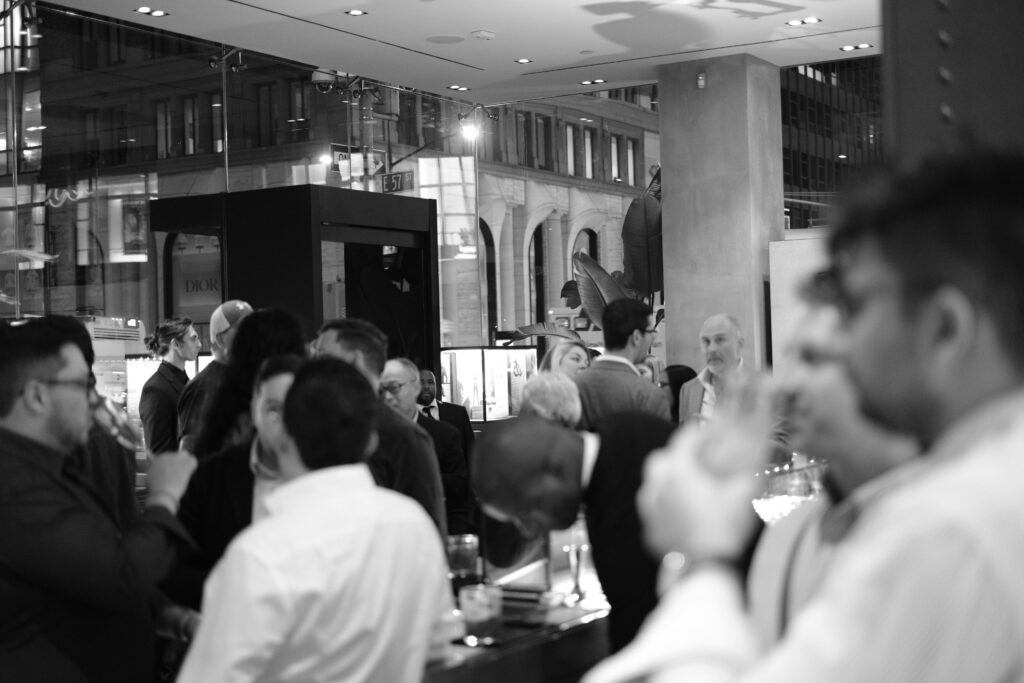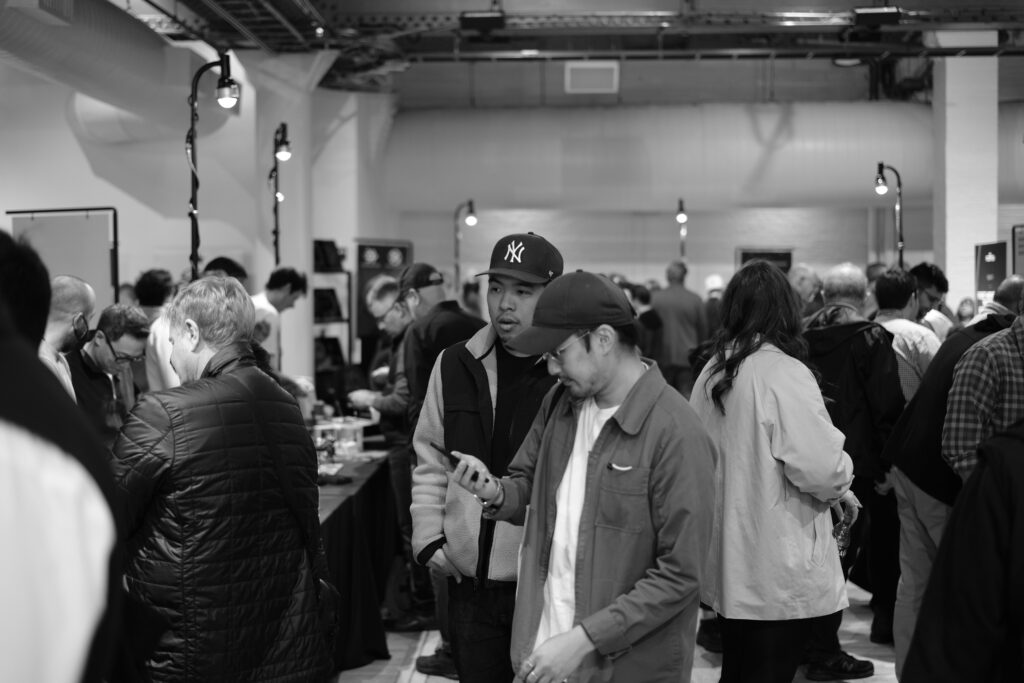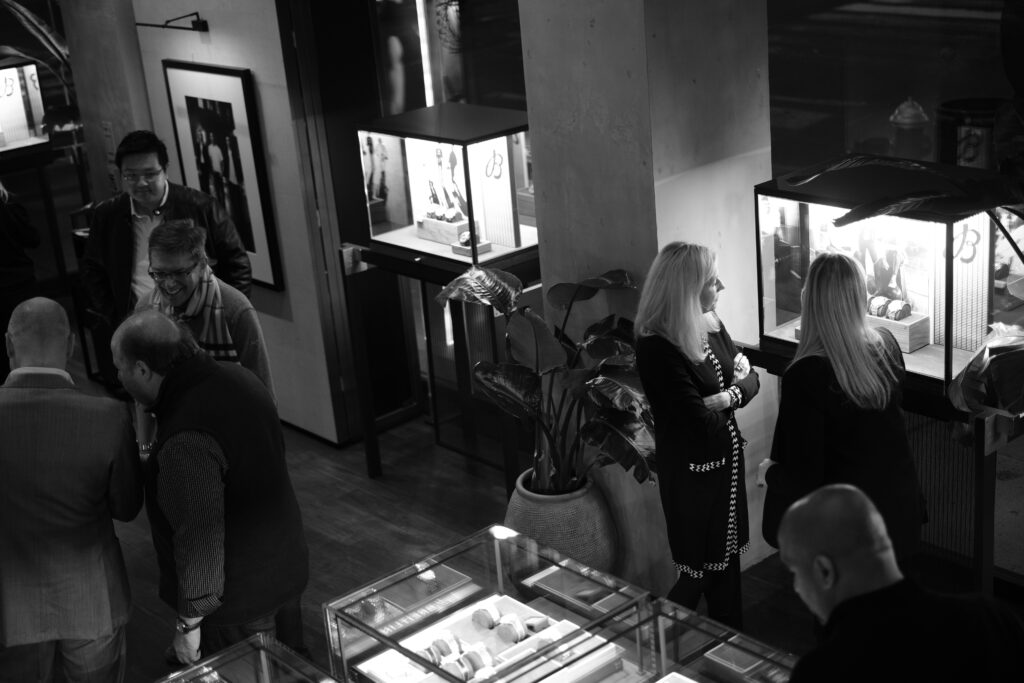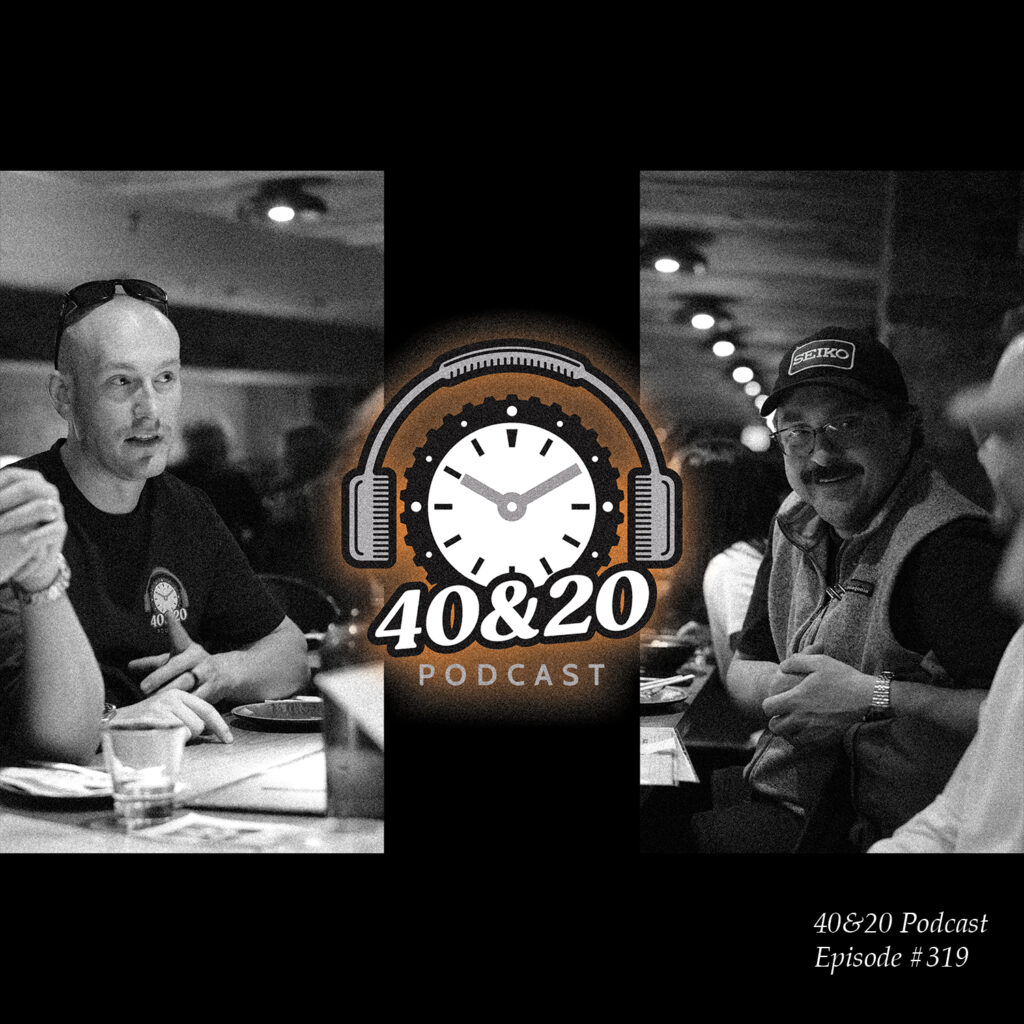2458 words
Chances are that if you are here, you have been made to feel sad, stupid, or inferior for something you love. Last month, I was on a podcast to promote a series of holiday gift guide articles for one of the sites I write for. Though I received a lot of interesting feedback from you, my readers, I also received a lot of questions. A few of the comments and questions were concerning guilt surrounding our hobbies. Before we get started, this article’s contents were derived from my more expanded conversations on the topic since the show’s airdate I had with some of my readers. I was not able to fully articulate and expand on the topic while on the podcast due to time constraints and owing to none of the interview questions being submitted beforehand.
The podcast I was a guest on centres around watch collecting and one of the hosts asked me how I reconcile spending time and money on a hobby that is insignificant when compared to life’s pressing matters. Though most of you were happy with my response, I was not. To paraphrase my own words in the interest of time, I said that the amount of time we spend on our hobbies is not something new. I then explained our modern bias and how it could be goaded by the very precise and highly detailed digital track records we now have for how we spend our time. Thus, we may have the impression that we are either spending more time on insignificant hobbies or, at the very least, feeling guiltier than we may have in the past. I went on to say that it is okay to like something silly and that not everything worthwhile has to be severe, and we will explore that here. As my answer attempted, there’s only so much a soundbite on a podcast can do other than offer a little comfort.
As an aside, for those of you who offered me drinks and a meal for my answer on the podcast, this is my way of truly earning that first round.
Base Mechanics of the Hobby and its Use
It is more beneficial to focus on what may be a snake within the bush rather than how beautiful the twisting vines are. As a species, we are wired to focus on potential threats and to build a helpful degree of vigilance. If one leads a life with frequently high levels of trauma, one then develops a pathological level of hypervigilance – just think about the difficulties in training traumatized rescue pets for reference. Our minds have built-in mechanisms to stop our minds from wandering during downtime, which can foster bad habits that may lead to hypervigilance and counterfactual thinking. These cognitive mechanisms seek refuge in safe havens when our attention is being demanded in the physical world, thus keeping our central nervous systems regulated and from being strained over time.

Various natural consequences await the wandering mind, such as counterfactual thinking, where we consider and, at times, obsess over hypothetical outcomes of what had just occurred. A typical and relatable example is focusing on one embarrassing thing you may have said during an event instead of all the good that happened. Most of us are guilty of this, and it is natural. What would have happened if I did not make that slightly off-colour joke? Am I going to be invited to future events simply because I brought one bottle of wine to dinner and nothing else? Am I supposed to leave a comment on every single one of my peer’s social media posts?
Hobbies are just one of many useful habits that we engage in to keep our minds active while not dwelling or wandering into unhelpful ones. Spending our downtime, even if that is a five-minute break from our workstations, keeps our minds active in a healthy manner. Undoubtedly, you have heard about people solving a problem at work while going on a walk or taking a break to do a puzzle. Keeping one’s mind active and on a course of action that is gratifying helps keep us on a positive track for when we are to be relied upon while also not feeling bad for wasting our time.

Unseen Benefits of a Hobby
Besides regulating our nervous system, there are many added benefits to taking on a hobby. Hobbies such as knitting and baking foster a sense of community by knitters and bakers giving others items they have made. I did this during the pandemic and helped keep four different social groups connected simply by dropping off a container of freshly baked cookies.
Not only does the internet and our modern devices enable us to track exactly how much time we spend on our hobbies, but they also allow us to meet others who share the same interests. Collector groups, workshops, and forums have become an avenue for people from all walks of life to come together and to celebrate what they share in common.
Downsides From within Hobby’s Communities
When casting from a net as wide as the internet, there are bound to be more than a few bad apples which enter various enthusiast groups. In my time with various enthusiast groups, I have come to know that these individuals struggle to lead fulfilling lives outside of their hobby and, as a result, are the primary source of unkindness that most enthusiasts encounter within the hobby’s in-groups.
First, some are natural bullies and will be encountered in every environment. Just like every scenario you may encounter in one of these individuals, an independent approach concerning the power dynamic and how it is being taken advantage of needs to be addressed if one is not simply going to remove oneself from the situation.
Second, there are those who come to over-identify with particular and oddly defined stances within a given hobby. Below is a list of some stances that appear within some groups:
Watches:
- Any watch which is not mechanical is not worth consideration, and thus, a person who does not align with this view themselves is not worth consideration.
Pens:
- Only fountain pens with gold nibs are worth consideration, and thus, a person who does not align with this view themselves is not worth consideration.
Scuba diving:
- You are not a real diver unless you undertake technical diving, and thus, a person who does not align with this view themselves is not worth consideration.
Cars:
- If a vehicle does not use an internal combustion engine or has a manual transmission, then it is not worth considering, and thus, a person who does not align with this view themselves is not worth consideration.
Yoga:
- Forms of yoga that fall with restorative practices are not worth consideration, and thus, a person who does not align with this view themselves is not worth consideration.
Keyboards:
- If a keyboard does not have mechanical switches, then it is not worth consideration, and thus, a person who does not align with this view themselves is not worth consideration.
These stances become problematic when people identify with them so much that they view anyone with an opposing view as a threat. To be honest, they are right to feel as such and should be treated with empathy rather than scorn for acting improperly. When people invest in a highly defined facet of a hobby and start to see it as an integral part of their identity, they naturally feel their worldview and values are under attack under such circumstances. Not only does the potential person discount the thoughts of the other person, but they also discount the person altogether. I have seen this happen several times, and it is crushing to see.

Then, there are gender norms which surround certain hobbies. Collecting watches tends to be a heavily male-dominated field. Over the years, I have watched several women feel alienated by men in watch collecting events. A lot of these men’s relationship with their hobby’s intersection with the opposite gender is focused on one of conflict with their spouse over the amount of resources and time that they are spending on the hobby. The same goes both ways for shoes, sneakers, gaming, golf, endurance running and whatever else one’s partner cannot identify with.
Last year at a journalling workshop, my heart broke when a woman nearly two feet shorter than me looked up with eyes filled with anxiety. I immediately proclaimed that I was a fellow nerd looking for a safe space to learn, and her entire posture relaxed. Journalling, a hobby and activity that I hold very dear, is a female-dominated space. There are many aspects of the hobby, such as artwork and working through one’s feelings, which carry a lot of stigma amongst archetypical male social groups. I have heard one derogatory term used by several men towards the act of journalling, and that is all that needs to be said about that. Then there are the wonderful acts of personalizing one’s journal through art and stickers, something which took me by surprise and has added a comforting aspect to the hobby I had not foreseen.
The negative behaviour which was outlined above is, of course, not only exhibited by men, for I had some hostility thrown in my direction within enthusiast groups centring around stationery, yoga, and even watches from the opposite sex. In every instance, all of the hostility dissipated with one sentence exchanged. I have been told by those who were apprehensive that my presence and appearance as a “tall and big man” with a booming deep voice immediately put them on guard. And dear readers, to be honest, I do not blame them one bit. And for those who I would not be able to turn around, I also do not blame them. I supported them and did my best to nurture the immediate safe environment which they have built for themselves. Sometimes, the situation is bigger than any one individual. In two instances, I saw that an individual viewed such gatherings as a safe place from people who looked like me, and I immediately removed myself from the venue. Considering someone else’s mental health and putting them ahead of yourself is simply the right thing to do in these scenarios.
Note: if you want to hear my hilariously deep voice, feel free to listen to the podcast I was on last month here.

Tools for Dealing with Hostility from within and outside of Enthusiast Groups
I mentioned earlier that this article is to justify the first round of drinks and food promised to me, and this section is where I cement not feeling guilty for doing so.
It may seem that the aberrant behaviour above is horrible and that you could never fall into this camp. The thought of over-identifying with a facet of a silly hobby and then passing value judgements on others and making them feel inferior seems outside of plausibility for most people. Yet, I have seen all kinds of people be susceptible to falling into this trap and unknowingly making someone feel alienated within a space they love.
In this section, I will present a tool I mentioned in the podcast in all but name. It works in both scenarios where you suspect yourself potentially making a value judgement on others and mistreating them and if you suspect that someone is targeting you.
It’s a fairly simple tool called Acceptance and Commitment Therapy, and its principles can be adapted for both scenarios discussed above. I am not a fan of the acronym attached to this tool, ACT, for it implies action for laypeople when, in many cases, the opposite of action is called for. As in the podcast, I said that whenever one feels discomfort and the urge to act upon it, it is best first to address the discomfort and why we feel that way before taking action.
If someone presents to you, let’s say, a smartwatch within a watch collecting gathering where the appreciation of mechanical watches is mostly what is bringing everyone there, instead of lashing out at their passion, listen and ask questions. While listening, asking yourself why you had such a strong reaction would reveal quite a lot about yourself and your relationship with your hobby. Also, goodness forbid, you may learn something new.
This tool naturally creates a military buffer zone where its enforced distance fosters empathy and perspective. It is equally as effective when facing a hostile or negative person who does not agree with your take on a hobby or simply takes offence at your presence. Instead of feeling entitled to be there and forcing your way through the environment, understanding the discomfort of others may lead to unexpected friendships.
I learned to do this many years ago and came to empathize and genuinely feel sorry for those overwhelmed by their over-attachment styles to their hobby. Seeing people become cognitively imprisoned by a hobby, opinion or belief that initially turned out to be a source of joy and love is profoundly sad. These humans deserve kindness, not alienation.

Final Thoughts
The common wisdom around this topic is that if you are not harming yourself or anyone else and not jeopardizing your household’s finances, then you should not feel bad about partaking in your hobby. For more on the latter portion of that sentiment, feel free to read my article on pathology within collecting communities here. Every human is different, and we find interest in different things in life and in different ways. However, whether from ourselves or others, questioning and valuing what we love to do in our free time is common. This is, in fact, healthy. But beating yourself about it can have ramifications. First, you are depriving yourself of a proven source of joy.

Second, severely questioning and walking away from a hobby that brings you joy can have ramifications on essential areas of your life. Over the last decade, I have seen more than one individual go through a manic and repetitive cycle. They would go from a period of being overjoyed and satisfied with their hobby to being upset by it and dropping it, only to return some months later. Usually, they try to explore another hobby during this phase but have always run into a similar cycle of love/hate with the new hobby. This cycle is also exhausting to one’s support group and can cause a natural drift over time where friendships erode.
The key is not to take your hobby as seriously as you would a topic such as fundamental human rights. You may laugh at the above sentence, but I have seen more enthusiasts aggressively start conflicts about their specific stance on a hobby than modern-day slavery or ongoing war crimes. As I said on the podcast, not everything worthwhile has to be severe. Enjoy what brings you joy, and don’t let anyone else corrupt that glee, even if it is yourself.
– Time of writing: 01/13/25

